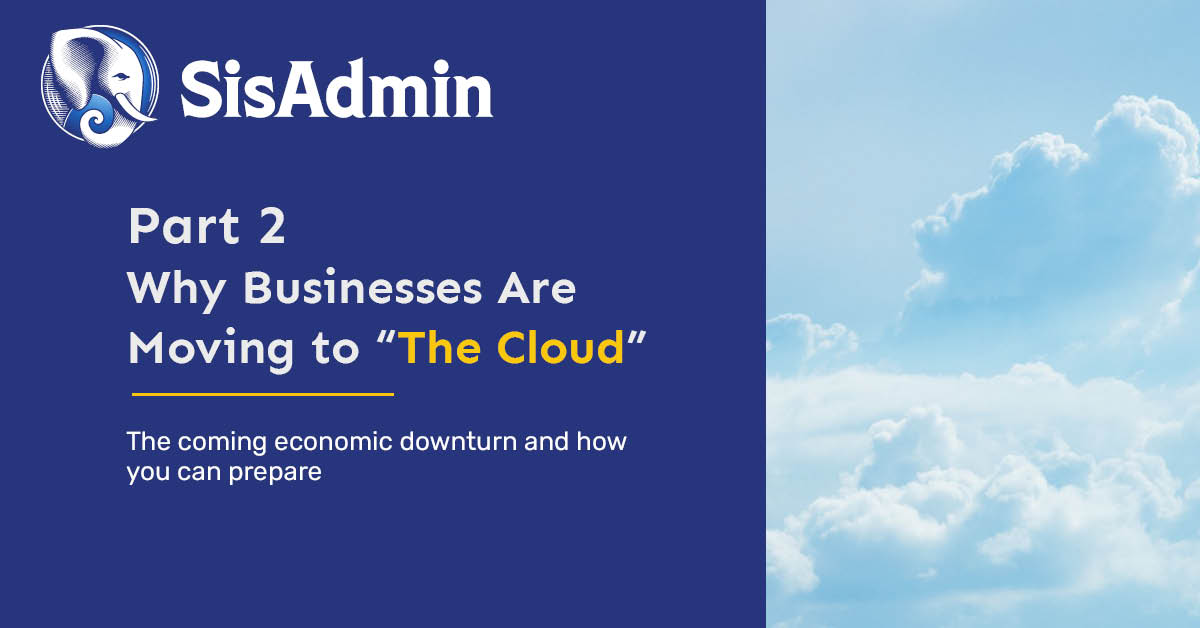Part 2: Why Businesses Are Moving To “The Cloud”
Businesses in 2023 are feeling the economic pressure of the coming downturn. Purse strings are tightening, and decision makers are being more conservative while looking at options that will bring them the most bang for their buck.
We sat down with our Service Delivery Manager and Professional Services Engineer to see what technology projects are worth the cost and, in the end, will save companies money.
The verdict? Moving to the Cloud. But how?
First, if you don’t know what the Cloud is and what it means to move to the Cloud read this article for more information! Then come back here and read why you should move to the cloud and how does it affects both business and budget?
Eliminate Hardware Needs
The remote and hybrid workplace brings logistic complications, and most businesses are still operating out of their old IT infrastructure. That may look like a server room running from your main office in an air-conditioned room, not to mention the power consumption and the hardware it takes to keep those servers running 24/7. That means generators, UPSs, and more. Also hardware and software updates that you need to keep up to date on, and even with all that you will need to replace your servers one day with more updated machines.
But moving to the cloud means you eliminate all of this. You don’t need an office to house the hardware, no AC, no high power bills, no new or changing hardware. All of that is managed by your cloud provider! But this advantage isn’t just for remote or hybrid companies. In person offices can also save money by removing this major tech expense.
Scale Your Business
Because moving to the cloud is subscription based, the ability to scale your infrastructure is a lot better than what you can do in your own office. You only have to pay for what you’re using, nothing more and nothing less. For example, if you hire on one or two people you can just purchase a few more licenses. With Microsoft Azure Active Directory, you pay for a seat by purchasing a Microsoft Business Premium license. Does this sound familiar? It may if you are subscribed to this level of licensing to use the Microsoft suite.
The alternative is having your equipment on premises. To scale a growing (or shrinking) business you need to manage hardware that can meet your needs efficiently, and it needs to work for at least 5-6 years. But hardware gets old and you will eventually need to replace it. But cloud services are simple. A lot of the pieces that you would have to manage yourself when running your own equipment, you no longer have to worry about.



